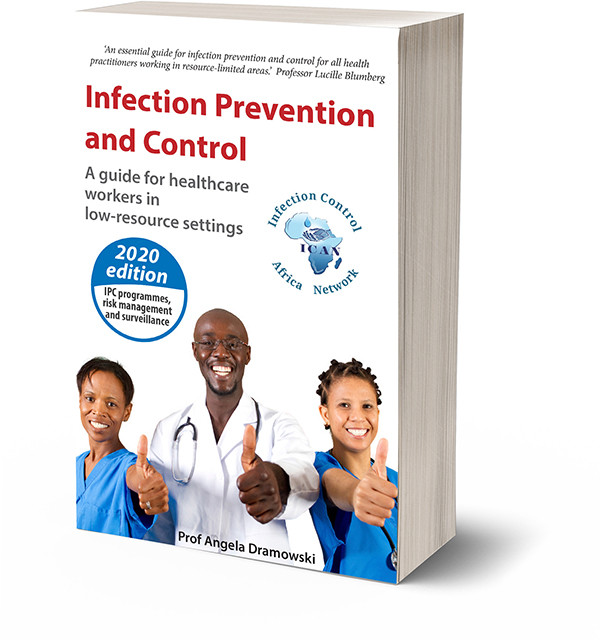Quiz 2: Care, prevention and counselling
Please choose the one, most correct answer to each question or statement.
- Which congenital disorder is common in South Africa?
- Oculocutaneous albinism.
- Cystic fibrosis.
- Marfan syndrome.
- Sickle cell anaemia.
- Where can people with congenital disorders be offered the best possible care?
- Only in industrialised countries.
- Only in large towns and cities.
- Only in hospitals with a genetic centre.
- The best possible care in the situation should always be offered.
- What is a three generation family tree?
- A method of providing care to three generations of a family with congenital disorder.
- A pictured representation of unaffected, carrier and abnormal people in three generations of a family.
- A way of predicting whether grandchildren will be male or female.
- The source of a new drug to treat haemophilia.
- Can a medical genetic diagnosis always be made?
- Yes, if the person is fully examined and all the tests are done.
- Only if the DNA screening test is done.
- In about 60% of cases.
- Usually not (only in about 10% of cases).
- In the treatment of congenital disorders:
- Neurodevelopmental therapy does not help.
- Only surgical treatment is useful.
- Medical treatment is often helpful.
- Genetic counselling is usually all that is needed.
- Basic reproductive health approaches to prevent congenital disorders include:
- Giving all nurses a course in genetic counselling.
- Teaching doctors to recognise common congenital disorders.
- Family planning.
- Screening all pregnant women for HIV/AIDS.
- Periconceptional care to prevent congenital disorders includes:
- Improving the diet of women.
- Monitoring the fetus in labour.
- Antenatal ultrasound screening for all pregnant women.
- Giving vitamin K to all newborn infants.
- What antenatal infections can cause congenital disorders?
- The common cold.
- Rubella (German measles).
- Hepatitis A or B.
- Trichomonas vaginal infection.
- What is medical genetic screening?
- Asking the age of women to find teenage mothers as they are at an increased risk for delivering infants with congenital disorders.
- Asking the age of the father (husband or partner).
- Applying a question or test to a population to identify individuals at increased risk for congenital disorders.
- Taking chest X-rays of all pregnant mothers to look for fetuses with congenital disorders.
- When is the best time to do genetic screening tests for congenital disorders?
- Preconception (before pregnancy).
- Only during the first trimester of pregnancy.
- Only after 20 weeks of gestation.
- Only once the infant is born (postnatal).
- What tests help to screen for congenital disorders?
- Identifying the mother’s ABO blood group.
- An ultrasound examination at 18 weeks of gestation.
- Measuring the mother’s thyroid function at booking for antenatal care.
- Measuring all infants’ serum bilirubin concentration at birth.
- Why is medical genetic screening for congenital disorders not available to everyone in a developing country (e.g. South Africa)?
- Because congenital disorders are rare.
- Because most congenital disorders cannot be prevented.
- Because it is too expensive and requires functioning health systems.
- Because it is unethical.
- What choice should a woman have if genetic screening indicates that she is at an increased risk for a congenital disorder?
- She should have no choice.
- She should accept the advice of the doctor.
- She must do what the genetic counsellor decides.
- She can choose to have prenatal diagnosis.
- What is active listening?
- Interrupting while the person is talking.
- Asking the person to speak loudly.
- Asking one or two colleagues to help with counselling.
- Paying attention to the person’s words, behaviour and emotional responses.
- What can block effective communication?
- Saying what you mean.
- Being judgemental.
- Listening more than talking.
- Repeating important information.
- What is the purpose of genetic counselling?
- Giving good advice.
- Teaching people how to accept bad news.
- Enabling people to make the best decisions and come to terms with their situation.
- Telling people what is best for them.
- What are the characteristics of a good genetic counsellor?
- Be a good communicator.
- Speak loudly and be firm.
- Have the knowledge to answer all the person’s questions.
- Be the manager of the genetic clinic or hospital out-patient department.
- Who should provide genetic counselling?
- A nurse or doctor who has been trained in genetic counselling.
- Doctors but not nurses.
- Only medical geneticists.
- Any midwife who works in an antenatal clinic.
- The first response to loss is usually:
- Depression.
- Acceptance.
- Denial.
- Anger and bargaining.
- How should a genetic counsellor break bad news?
- Tell the person when there are a lot of other people present.
- Do not worry about the person’s knowledge and understanding of the situation.
- Give all the information at one time.
- Use simple language.

